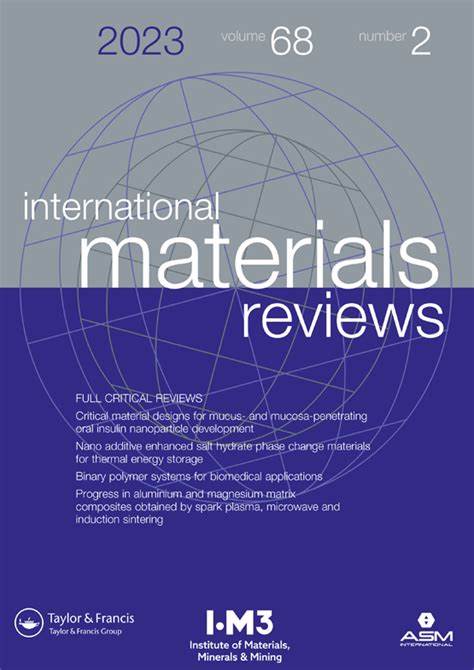从材料科学的角度看医学领域金属材料的生物膜控制——从基础到评价
IF 15.5
1区 材料科学
Q1 MATERIALS SCIENCE, MULTIDISCIPLINARY
引用次数: 2
摘要
摘要:这篇综述描述了生物膜以及解决医学领域问题的材料科学/工程方法的必要性。特别是生物膜问题与传染病密切相关。大多数慢性病和医院获得性感染可归因于生物膜。生物膜通常在材料上形成。它们可以是生物材料,如植入物、导管、支架等。这些薄膜也可以在人体外的物品上形成。它们包括床、服务台、医用刀、注射针等。尽管材料明显影响生物膜的形成和生长,但很少有使用材料科学方法的研究。在这篇综述中,我们从材料科学的角度总结了生物膜的概念。主题包括生物膜与材料(尤其是金属材料)之间的相互作用、评估技术、对先前研究的鸟瞰分析,以及对开发抗感染金属材料的未来方向的讨论。本文章由计算机程序翻译,如有差异,请以英文原文为准。
Biofilm control on metallic materials in medical fields from the viewpoint of materials science – from the fundamental aspects to evaluation
ABSTRACT This review describes biofilms and the need for a materials science/engineering approach to solve the problems in the medical field. In particular, biofilm problems are closely related to infectious diseases. Most chronic diseases and the hospital-acquired infections could be attributed to biofilms. Biofilms usually form on materials. They may be biomaterials such as implants, catheters, stents and others. These films can also form on items outside of the human body. They include beds, service tables, medical knives, needles for injections, etc. Even though materials obviously affect biofilms formation and growth, there have been few studies using the materials science approach. In this review, we summarize the concept of biofilms from the viewpoint of materials science. Topics include the interaction between biofilms and materials (especially metallic materials), evaluation techniques, a bird's-eye analysis of previous investigations, and a discussion about the future direction for developing anti-infectious metallic materials.
求助全文
通过发布文献求助,成功后即可免费获取论文全文。
去求助
来源期刊

International Materials Reviews
工程技术-材料科学:综合
CiteScore
28.50
自引率
0.00%
发文量
21
审稿时长
6 months
期刊介绍:
International Materials Reviews (IMR) is a comprehensive publication that provides in-depth coverage of the current state and advancements in various materials technologies. With contributions from internationally respected experts, IMR offers a thorough analysis of the subject matter. It undergoes rigorous evaluation by committees in the United States and United Kingdom for ensuring the highest quality of content.
Published by Sage on behalf of ASM International and the Institute of Materials, Minerals and Mining (UK), IMR is a valuable resource for professionals in the field. It is available online through Sage's platform, facilitating convenient access to its wealth of information.
Jointly produced by ASM International and the Institute of Materials, Minerals and Mining (UK), IMR focuses on technologies that impact industries dealing with metals, structural ceramics, composite materials, and electronic materials. Its coverage spans from practical applications to theoretical and practical aspects of material extraction, production, fabrication, properties, and behavior.
 求助内容:
求助内容: 应助结果提醒方式:
应助结果提醒方式:


